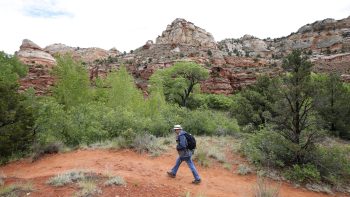Over the next month, while David Brancaccio is doing stories from Egypt and the United Arab Emirates, the Economy 4.0 blog will be looking at the future of the economy in the Middle East.
How does Egypt bring better lives to more people? Sitting one evening in Cairo with 28-year-old Ahmed Maher, one of the activists at the forefront of Egypt’s revolution, he said that wide gaps in economic and social status are what make Egyptian society in his view “ripe for change.” Maher, a construction engineer, witnessed on the job the cramped and dangerous conditions in which too many people in his country lived. That, Maher, said prompted his political activism.
In the wake of the political upheaval at the start of the year, Egyptian officials have promised to build a million units of affordable housing within five years. Skeptics say that works out to be more than 500 new dwellings a day for five years, a figure that seems unobtainable. But some experienced planners in Egypt say there are already designs that make it feasible to build even more rapidly.
There will be at least two big tricks to this. First, it is not just housing that has to be built. What I learned visiting an existing “new city” outside of Cairo is that what has to be engineered are entire new communities. These would have their own internal economies, where jobs and social relationships can take place without commuting long distances to central Cairo. The other big trick, given past experience with new housing in Egypt, is ensuring the new complexes remain inexpensive. Corruption under the old system added middle men, pushed up prices, and required fancy or at least middle class incomes to afford what should have been cheap places to live.
I was also told of some wild and fascinating visions for turning parts of the Egyptian desert into new, thriving communities without having to resort to drawing more precious water from the Nile. There is even the unexpected notion of taking some inspiration from neighboring Israel. Might Egypt, a local architect told me, try new living situations along the lines of the kibbutz?
More on that in a later post.
There’s a lot happening in the world. Through it all, Marketplace is here for you.
You rely on Marketplace to break down the world’s events and tell you how it affects you in a fact-based, approachable way. We rely on your financial support to keep making that possible.
Your donation today powers the independent journalism that you rely on. For just $5/month, you can help sustain Marketplace so we can keep reporting on the things that matter to you.


















